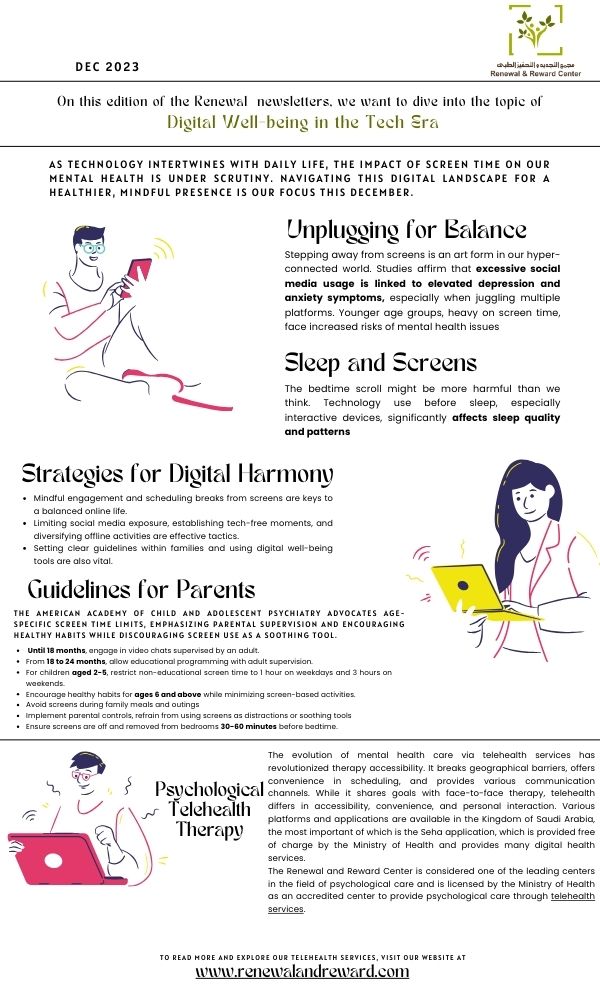As technology intertwines with daily life, the impact of screen time on our mental health is under scrutiny. Navigating this digital landscape for a healthier, mindful presence is our focus this December.
Unplugging for Balance
Stepping away from screens is an art form in our hyper-connected world. Studies affirm that excessive social media usage is linked to elevated depression and anxiety symptoms, especially when juggling multiple platforms. Younger age groups, heavy on screen time, face increased risks of mental health issues.
Sleep and Screens
The bedtime scroll might be more harmful than we think. Technology use before sleep, especially interactive devices, significantly affects sleep quality and patterns.
Strategies for Digital Harmony
Mindful engagement and scheduling breaks from screens are keys to a balanced online life. Limiting social media exposure, establishing tech-free moments, and diversifying offline activities are effective tactics. Setting clear guidelines within families and using digital well-being tools are also vital.
Guidelines for Parents
The American Academy of Child and Adolescent Psychiatry advocates age-specific screen time limits, emphasizing parental supervision and encouraging healthy habits while discouraging screen use as a soothing tool.
- Limit screen time for infants: Until 18 months, engage in video chats supervised by an adult.
- From 18 to 24 months, allow educational programming with adult supervision.
- For children aged 2-5, restrict non-educational screen time to 1 hour on weekdays and 3 hours on weekends.
- Encourage healthy habits for ages 6 and above while minimizing screen-based activities.
- Avoid screens during family meals and outings
- Implement parental controls, refrain from using screens as distractions or soothing tools
- Ensure screens are off and removed from bedrooms 30-60 minutes before bedtime.
Psychological Telehealth Therapy
The evolution of mental health care via telehealth services has revolutionized therapy accessibility. It breaks geographical barriers, offers convenience in scheduling, and provides various communication channels. While it shares goals with face-to-face therapy, telehealth differs in accessibility, convenience, and personal interaction. Various platforms and applications are available in the Kingdom of Saudi Arabia, the most important of which is the Seha application, which is provided free of charge by the Ministry of Health and provides many digital health services.
The Renewal and Reward Center is considered one of the leading centers in the field of psychological care and is licensed by the Ministry of Health as an accredited center to provide psychological care through telehealth services.
Stay tuned for more on telehealth services and distant psychological treatment from the perspective of mental health professionals and beneficiaries.
To read more and explore our telehealth services, visit our website at https://www.renewalandreward.com/






